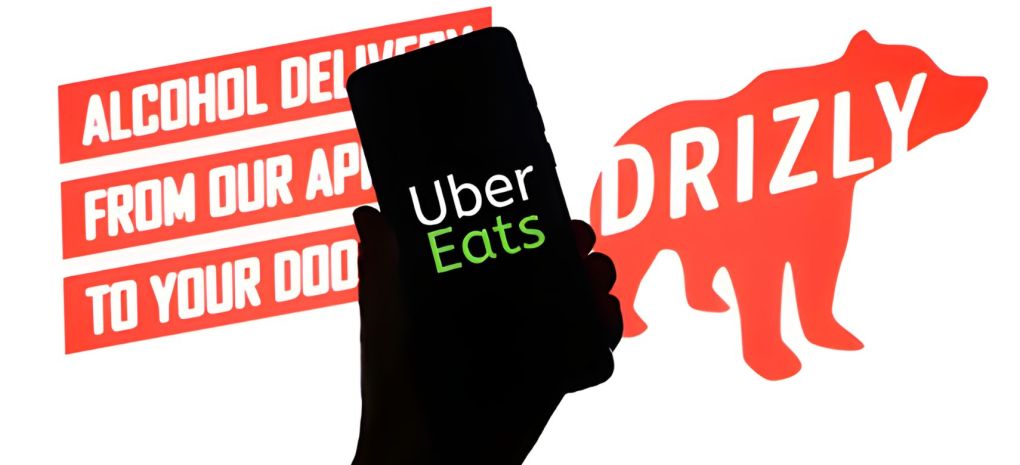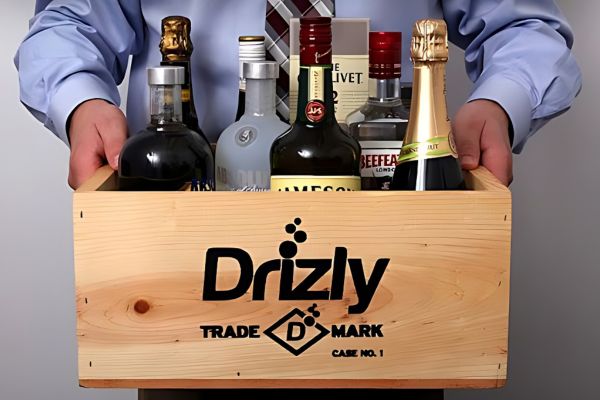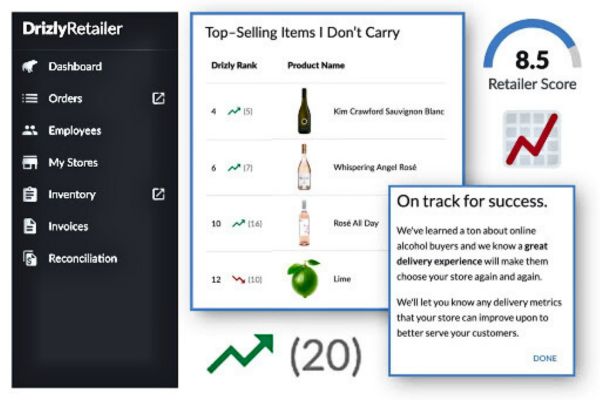
29/01/2024 Uber's Closure of Drizly: Navigating Challenges, Industry Impacts, and the Future of Alcohol Delivery
Drizly, the alcohol delivery platform, was founded in 2012 and gained prominence in the evolving landscape of on-demand services. Before its acquisition by Uber in February 2021, Drizly had established itself as a leading platform for online alcohol sales and delivery, connecting consumers with local liquor stores.
Pre-acquisition, Drizly operated independently, providing a convenient and efficient way for customers to order a wide range of alcoholic beverages through its app or website. The platform partnered with local retailers, allowing users to browse an extensive catalog of wines, spirits, and beers, and have their selections delivered to their doorstep.
The acquisition by Uber marked a strategic move for the ride-hailing giant to diversify its offerings and tap into the growing demand for alcohol delivery services. The integration of Drizly into the Uber Eats platform aimed to provide users with a seamless experience, allowing them to order both food and alcoholic beverages in one go. This mainly impacted alcohol retailers in urban areas. Sajive Jain, owner of Bottle Barn in Sonoma County told me: “We had briefly tried Drizly in the past, before Covid, but found it too expensive. It wasn’t very popular in our part of California. It was more popular in larger cities compared to towns. We don’t see any impact [of Drizly’s closure]” on Bottle Barn.
Post-acquisition, Drizly continued to operate as a standalone service within the Uber umbrella. The acquisition enabled Uber to expand its presence in the alcohol delivery market, leveraging Drizly's established network of retailers and its expertise in navigating the complex regulatory landscape surrounding alcohol sales.
For consumers, the acquisition meant increased accessibility to alcohol delivery services through the Uber Eats app, creating a one-stop shop for food and beverage delivery. It also allowed Uber to strengthen its position in the competitive market for on-demand services, catering to a broader range of consumer needs.

Image Source: Drizly
In the context of the wine and spirits industry, the Drizly-Uber partnership exemplifies the increasing reliance on digital platforms to facilitate the distribution of alcoholic beverages. This trend not only reflects changing consumer preferences but also highlights the importance of adaptability and innovation within the industry.
The integration of technology in the alcohol retail sector, as exemplified by Drizly, aligns with broader trends in the beverage industry. The shift towards e-commerce and on-demand services has become particularly significant in the wake of changing consumer behaviors, and companies like Drizly play a pivotal role in shaping the landscape of alcohol consumption.
It is essential to note that developments in the alcohol delivery sector, including the Drizly acquisition by Uber, had implications not only for consumers but also for regulatory frameworks governing the sale and distribution of alcoholic beverages. As the industry continued to evolve, the intersection of technology, convenience, and regulatory compliance remained crucial for the success and sustainability of such ventures.
The Drizly acquisition by Uber represented a notable development in the intersection of technology and the alcohol industry. The integration of alcohol delivery services into the Uber Eats platform reflected the evolving preferences of consumers and the broader trend of digitalization in the retail sector. As the industry continues to adapt to these changes, considerations of sustainability and regulatory compliance will play a crucial role in shaping its future trajectory.
Have Times and Markets Changed?
The January 2024 decision by Uber to shut down Drizly, the alcohol delivery service it acquired for $1.1 billion in 2021, reflects a strategic shift in focus towards consolidating its food delivery services under the Uber Eats brand. This move comes after three years of Drizly operating independently within the Uber family. The decision to close Drizly aligns with Uber's core strategy of offering a comprehensive range of services, including food, groceries, and alcohol, all within a single app.
The acquisition of Drizly by Uber in 2021 was a strategic response to the changing dynamics brought about by the pandemic. With a decline in the number of customers using Uber's ridesharing service due to lockdowns and work-from-home orders, Uber leaned heavily on its delivery services like Uber Eats to supplement its income. Drizly, being a popular alcohol delivery service in America, became an attractive acquisition for Uber during this period, allowing the company to diversify its offerings and tap into the growing demand for online alcohol sales.
However, Drizly's journey under Uber's ownership was not without challenges. The company faced controversy in 2020 when it acknowledged a cyberattack that compromised the data of around 2.5 million customers. The Federal Trade Commission (FTC) imposed restrictions on Drizly's data collection due to the security breach, highlighting the importance of cybersecurity in the digital age.
The decision to shut down Drizly now is attributed to Uber's commitment to its core Uber Eats strategy. Dimitri Gore-Coty, Uber's SVP of delivery, emphasized the company's focus on providing consumers with a one-stop-shop convenience for a variety of services, from food to groceries to alcohol, all through a single app. This strategic consolidation aligns with consumer preferences for simplicity and convenience.
It's worth noting that the closure of Drizly comes in the context of Uber's broader efforts to streamline its services. The company also sunsetted its Cornershop grocery delivery app as part of the consolidation process. Uber's statement that its BevAlc delivery category on Uber Eats more than doubled in the last year indicates a positive trend in alcohol delivery through its platform.
The closure of Drizly marks the end of a chapter for the brand, which was launched in 2012 and was once dubbed 'the Amazon of Liquor.' The success of the app was rooted in its ability to allow users to compare the prices of drinks in local shops and order alcohol on demand. The app's unique features, such as the ability to compare prices and technology for verifying customers' IDs, contributed to its popularity.
Drizly Did More than Deliver

Image Source: Drizly
Drizly's value extended beyond its role as an alcohol delivery service; it served as a valuable source of insights into consumer habits within the beverage industry. By analyzing the data generated through its platform, Drizly provided enlightening reports on consumer preferences, trends, and purchasing behaviors.
The reports generated by Drizly covered a range of topics, including popular beverage choices, regional preferences, and fluctuations in demand for specific products. These insights were invaluable not only for Drizly itself but also for the broader wine and spirits industry, retailers, and other stakeholders seeking a deeper understanding of market dynamics.
For journalists and marketing professionals covering the wine and spirits industries, access to such reports offered a wealth of information for creating informed and data-driven content. Reports on consumer habits could be used to explore emerging trends, analyze the impact of marketing strategies, and provide valuable context for understanding shifts in the market.
It's worth noting that the closure of Drizly may impact the availability of these detailed insights into consumer behavior within the alcohol delivery sector. However, as the industry evolves, new players or existing platforms may fill this void, and journalists may continue to leverage such data to enhance their coverage of the wine and spirits industries.
In the context of sustainable practices, understanding consumer habits through data analysis could also contribute to discussions on environmentally conscious choices. Insights into whether consumers are gravitating towards sustainably produced wines or spirits, for example, could be crucial for both the industry and consumers alike.
[[relatedPurchasesItems-31]]
In the final analysis, the shutdown of Drizly by Uber is a strategic decision driven by a shift in focus towards consolidating food delivery services under the Uber Eats brand. This move reflects Uber's commitment to simplifying its offerings and providing consumers with a seamless, one-stop-shop experience. The closure also highlights the dynamic nature of the technology and delivery services industry, where companies must adapt to changing consumer behaviors and market conditions.
Note - Header Image Source: Food on Demand.



